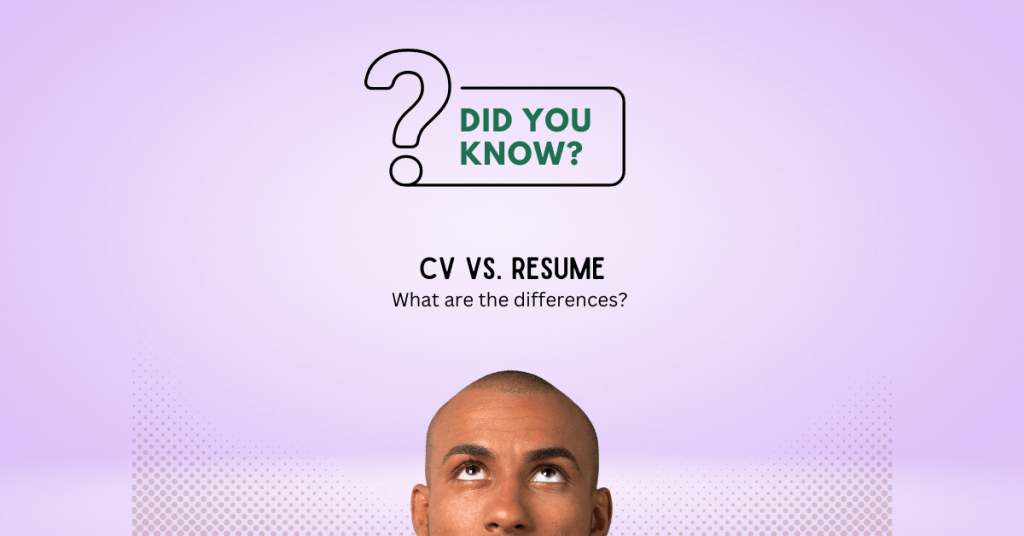You’ve heard of a CV. You’ve heard of a resume. But what are the differences between the two job search tools? And, when should you use each one?
Both documents need to be tailored to the specific job and organization you are applying to. Both should always showcase why you are the best-qualified candidate. Hiring managers will use these documents to screen candidates before deciding to move forward with an interview.
Deciding When You Need a CV or a Resume
Resumes are the go-to document for many jobs. They give hiring managers a snapshot of your qualifications and work experience.
CVs are used to apply to academic, scientific, and research positions, including faculty, adjunct faculty, and online faculty jobs. While a CV contains much of the job experience from your resume, it also highlights your academic, higher education, and teaching experience in great detail.
- Latin vs. French
CV stands for curriculum vitae, Latin for “course of life.”
Resume is French for “summary.”
You can see by the origins of each word that they have different meanings and purposes.
A CV is a more robust document detailing your professional, educational, and academic life than a resume and is typically much longer.
Professor Service’s Dorothy Miraglia, Ph.D., explains further:
“It’s much more than putting your work experience in chronological order. A CV showcases your subject matter expertise, LMS knowledge, personal attributes, research, teaching philosophy, and personality. It’s a space to share how you apply professional skills to a classroom.”
- Length
Hiring managers only spend minutes scanning a resume for key skills, experience, and qualifications. For this reason, keep resumes short. Edit them to 1 to 2 pages focused on the skills and experience related to a particular position. A CV presents a complete history of academic credentials, so the length of the document is much longer.
- Skills vs. Academic Experience
The focus of each document is different. Resumes are focused on skills relevant to the job. Applicants can create multiple versions of a resume for particular jobs highlighting skills and experience for each position. This means editing to cut skills and experience that may not be relevant to the position.
A CV is more than a snapshot of relevant skills and experience. It is a comprehensive and inclusive document with a complete list of academic accomplishments, publications, presentations, and courses taught. While you should edit resumes to 1 to 2 pages of relevant information for a particular position, a CV should continue to get longer as you add new academic experiences throughout your career.
- Content
While a CV contains several of the same sections you find on a resume, such as work history, personal attributes, and education, it has several unique and critical sections.
The first is the Statement of Teaching Philosophy. A teaching philosophy is a 2 to 3-paragraph essay explaining what you believe as an instructor. For experienced faculty, it can include examples of successful practices for engagement, student learning, and methods for approaching teaching. Another section unique to a CV is a history of academic and teaching experience. Finally, a CV includes any research projects, papers, and publications you contributed to.
If you are applying to academic positions and require a new CV, or a review of your current CV, reach out to Professor Services. Our CV writers can help you position your accomplishments with the professional distance required to ensure you are neither bragging, nor being too modest.
Angela
Latest posts by Angela (see all)
- The Art of Connection: Networking and Professionalism in Academia - July 25, 2024
- Got the Teaching Job? Now, You Need To Attend the Faculty Training - July 1, 2024
- Higher Education Trends: Insights from Our COO, Sheila Fry - June 20, 2024
